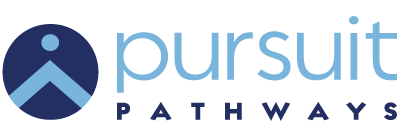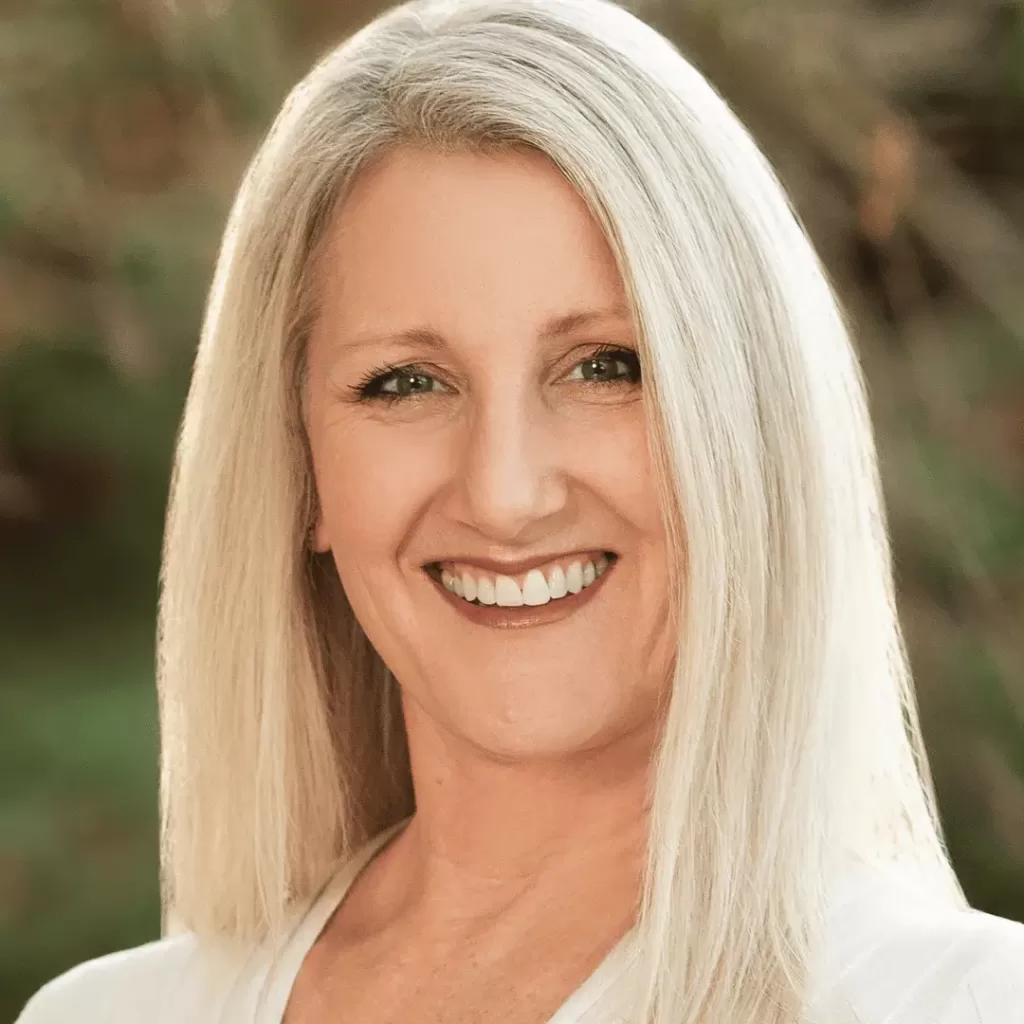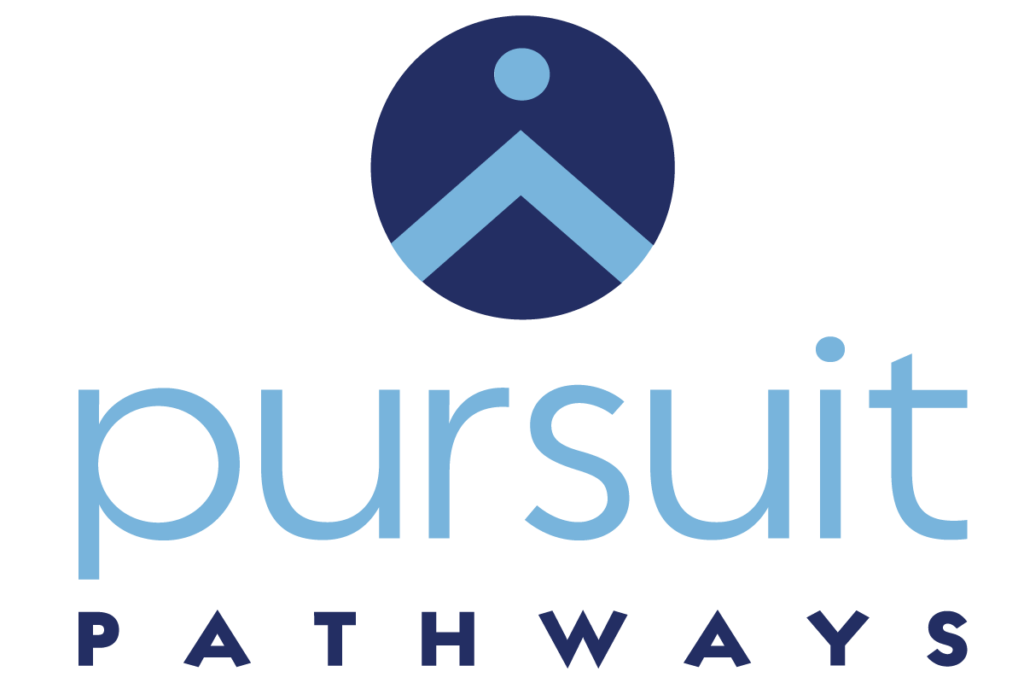Shield the Vulnerable – Untold Stories:
The Hidden Impact of Human Exploitation.
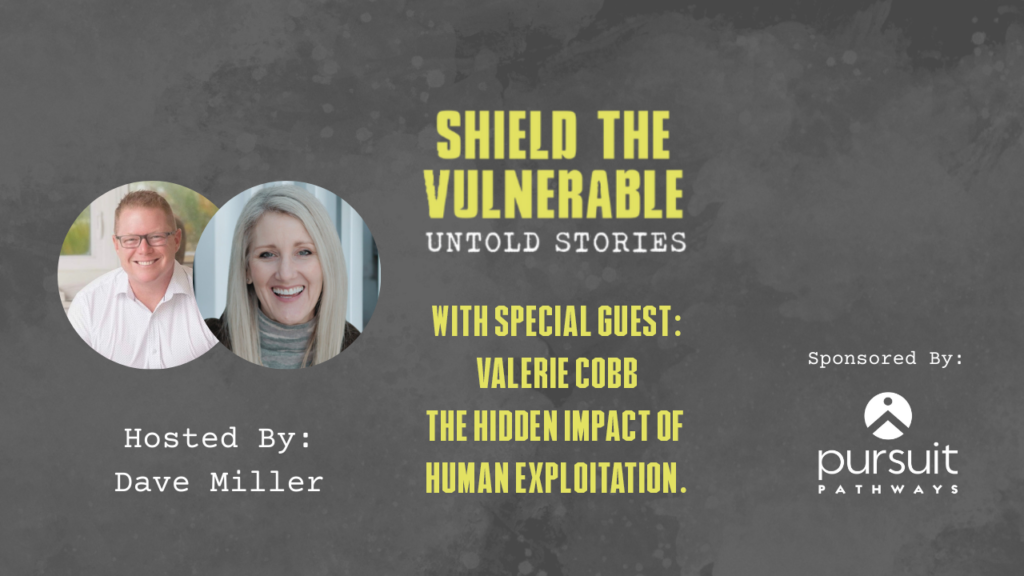
Shield The Vulnerable: Unveiling the Hidden Crisis of Exploitation and Human Trafficking
In a recent episode of Shield The Vulnerable: Untold Stories, host Dave welcomed an insightful guest, Valerie Cobb, CEO of The Impact Book. Valerie is not only a successful entrepreneur but also an advocate for shedding light on the dark realities of exploitation, human trafficking, and workplace violence. Through her experiences, both personal and professional, she shares a deep understanding of the devastating impact of these crimes and the urgent need for awareness, education, and action.
Exploitation: The Unspoken Crisis
Despite being one of the most critical issues of our time, exploitation remains largely unreported and overlooked. As Valerie points out, less than 10% of cases ever come to light. Society tends to focus on political scandals or workplace grievances, often sensationalizing issues that pale in comparison to the human cost of exploitation.
From her extensive travels—including time spent in the Cayman Islands and the Eastern world—Valerie has witnessed firsthand the emotional and financial toll on families affected by human trafficking and workplace violence. She recalls her involvement in relief efforts after Hurricane Ivan, where human behavior shifted when faced with survival. In those moments, fundamental human needs—food, water, shelter—became paramount, revealing the vulnerabilities that traffickers and exploiters prey upon.
The Overlooked Impact: Mental and Financial Toll
One of the most profound insights Valerie shared is how deeply interconnected the financial and mental burdens of exploitation are. While monetary costs—medical expenses, therapy, and lost wages—can be staggering, the mental health repercussions are even more devastating.
Many victims struggle with long-term trauma, often leading to chronic health issues, absenteeism, and even suicidal ideation. Family members, too, bear the weight of this trauma, witnessing their loved ones withdraw from life’s significant moments—weddings, birthdays, and celebrations—because of the lingering psychological scars.
As Valerie emphasized, exploitation is not limited to strangers or remote criminals—it often happens within our homes and workplaces, making it even harder to detect and report. Many survivors remain silent due to fear, shame, or threats from their abusers, a reality that perpetuates the cycle of abuse.
Exploitation in the Digital Age
The rise of digital technology has introduced new avenues for exploitation. Online predators no longer need to physically interact with their victims; they can manipulate, groom, and exploit individuals from behind a screen. Financial crimes, bullying, and human trafficking have adapted to the digital world, making vigilance and education more important than ever.
Valerie warns that threat actors are highly skilled at deception. They leverage psychological tactics, build trust, and isolate victims before exploiting them. And these aren’t just shadowy figures lurking in basements—they are individuals who walk among us, blending seamlessly into society.
What Can We Do?
1. Increase Awareness and Education
Parents must openly discuss online safety with their children.
Companies should implement regular training sessions on recognizing and preventing exploitation.
Schools should integrate education on digital safety and healthy relationships into their curriculum.
2. Break the Silence
Survivors must feel safe coming forward, knowing they will be believed and supported.
Organizations should create a culture where employees and students feel comfortable reporting suspicious activity.
3. Implement Preventative Measures
Regularly update security measures, both online and offline.
Encourage open conversations within families and workplaces about warning signs and risk factors.
Support initiatives and charities that provide resources for survivors and at-risk individuals.
Final Thoughts: Prioritize Prevention
Valerie’s biggest takeaway is simple: prevention is always better than reaction. The cost of ignoring these issues—both financially and emotionally—is far greater than the time it takes to educate ourselves and our communities. Whether it’s through brief monthly safety meetings, family discussions, or company-wide initiatives, taking small steps now can prevent catastrophic consequences in the future.
As Valerie states: (00:11:42)
“If I could rewind the clock and shield that person… If I could rewind the clock, the financial part of it is all the health care needed to help save these individuals after the fact, something has happened. You can spend upwards of $5,000 a year trying to fix the damage. But the bigger problem is the mental and emotional toll. These are human beings that could have had a good quality of life.”
If you or someone you know is affected by exploitation, know that you are not alone. Resources exist, and support is available. Share this information with your network, talk to your family, and get involved in making a difference. Together, we can Shield The Vulnerable and work towards a safer future for all.
For more information and resources, visit Pursuit Pathways and explore how you can contribute to the mission of ending exploitation.
Additional Resources:
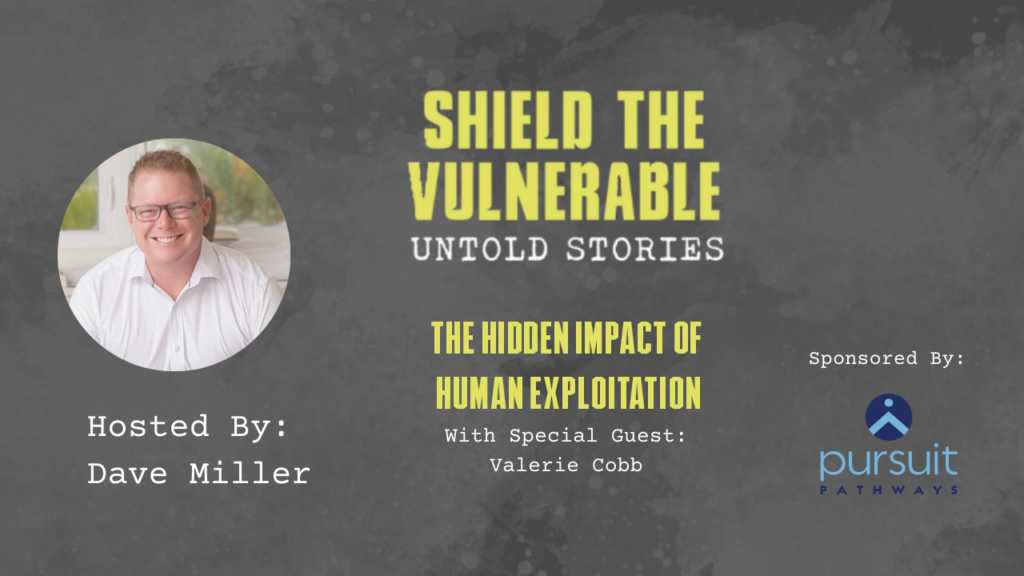
The Hidden Impact of Human Exploitation.
On Shield The Vulnerable: Untold Stories, host Dave welcomes Valerie Cobb, CEO of The Impact Book. A successful entrepreneur and advocate, Valerie shares insights on exploitation, human trafficking, and workplace violence, emphasizing the need for awareness, education, and action.

Add Your Heading Text Here
Lorem ipsum dolor sit amet, consectetur adipiscing elit. Ut elit tellus, luctus nec ullamcorper mattis, pulvinar dapibus leo.
About Valerie Cobb
Why do people buy? That’s a typical question Valerie Cobb asks during one-on-one sessions with revenue team members and business owners. The answer? “Their reasons.” Getting to the root of buying and selling dysfunction is key to setting organizations on the path to high-performing sales and achieving revenue goals over the next five years.
Very data-informed, Valerie integrates process, numbers, and the human element to help small to mid-sized businesses beat the odds of failure. Twenty-three percent (23%) of small businesses don’t survive due to not having the right team, and 19% fail because they are outcompeted.
Between 2021 and 2023, an estimated 42% of employees churned. “That,” Valerie states, “is a nightmare when it comes to managing revenue teams and forecasting five years ahead. It’s the reason Revenue Northstar was born.”
Currently CEO and Co-Founder of Revenue Northstar, she has invested time and energy alongside her Co-Founder in building the proprietary Revenue Success Formula©, which transforms mediocre teams into high-performing units, exceeding year-over-year quotas and KPIs, and driving up to 600% revenue growth.
Revenue Northstar guides C-suite executives through the halls, dead ends, and U-turns—leading them toward an upward growth trajectory.
Outside of her professional achievements, Valerie enjoys a diverse range of hobbies, from scuba diving to tennis, dirt bike riding to accomplished performance singing, but her most prized activity is spending time with her family.
